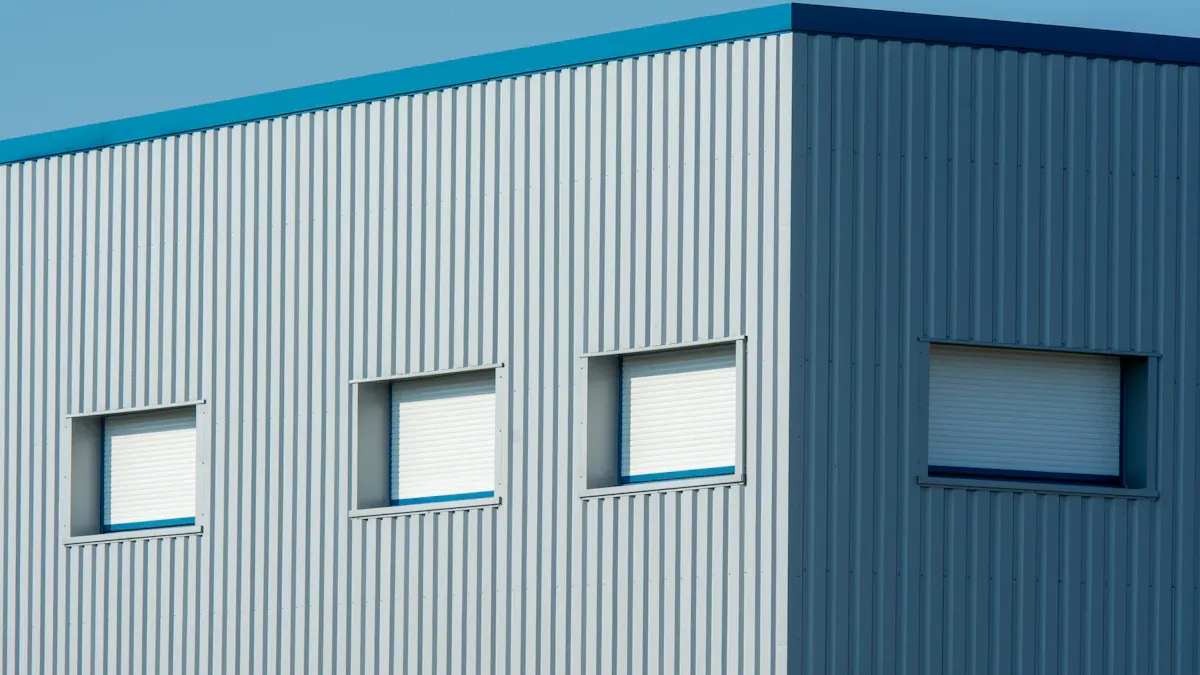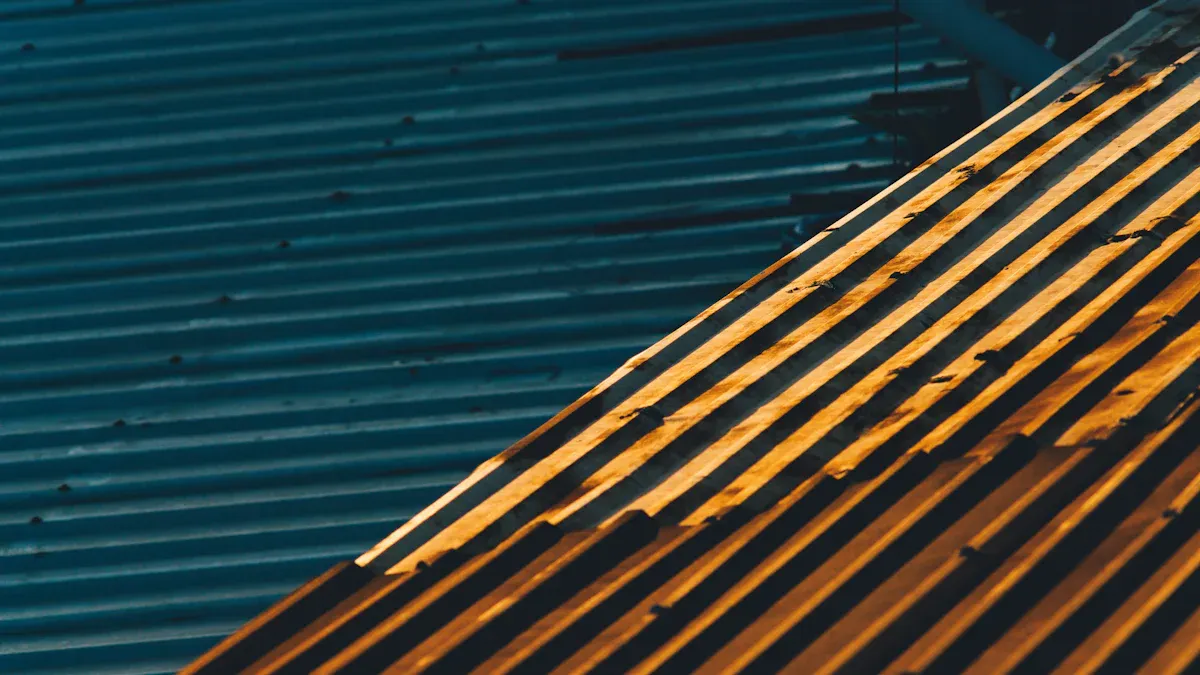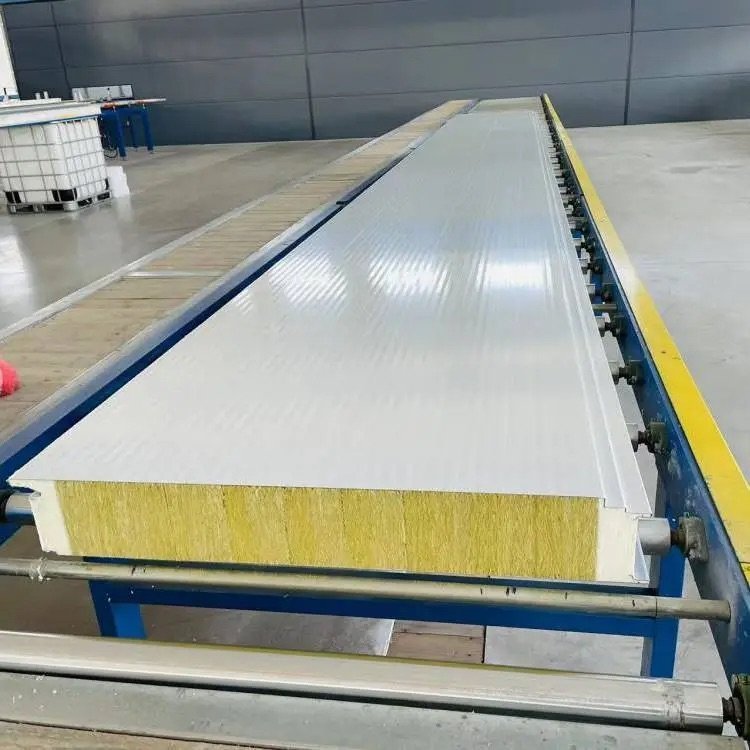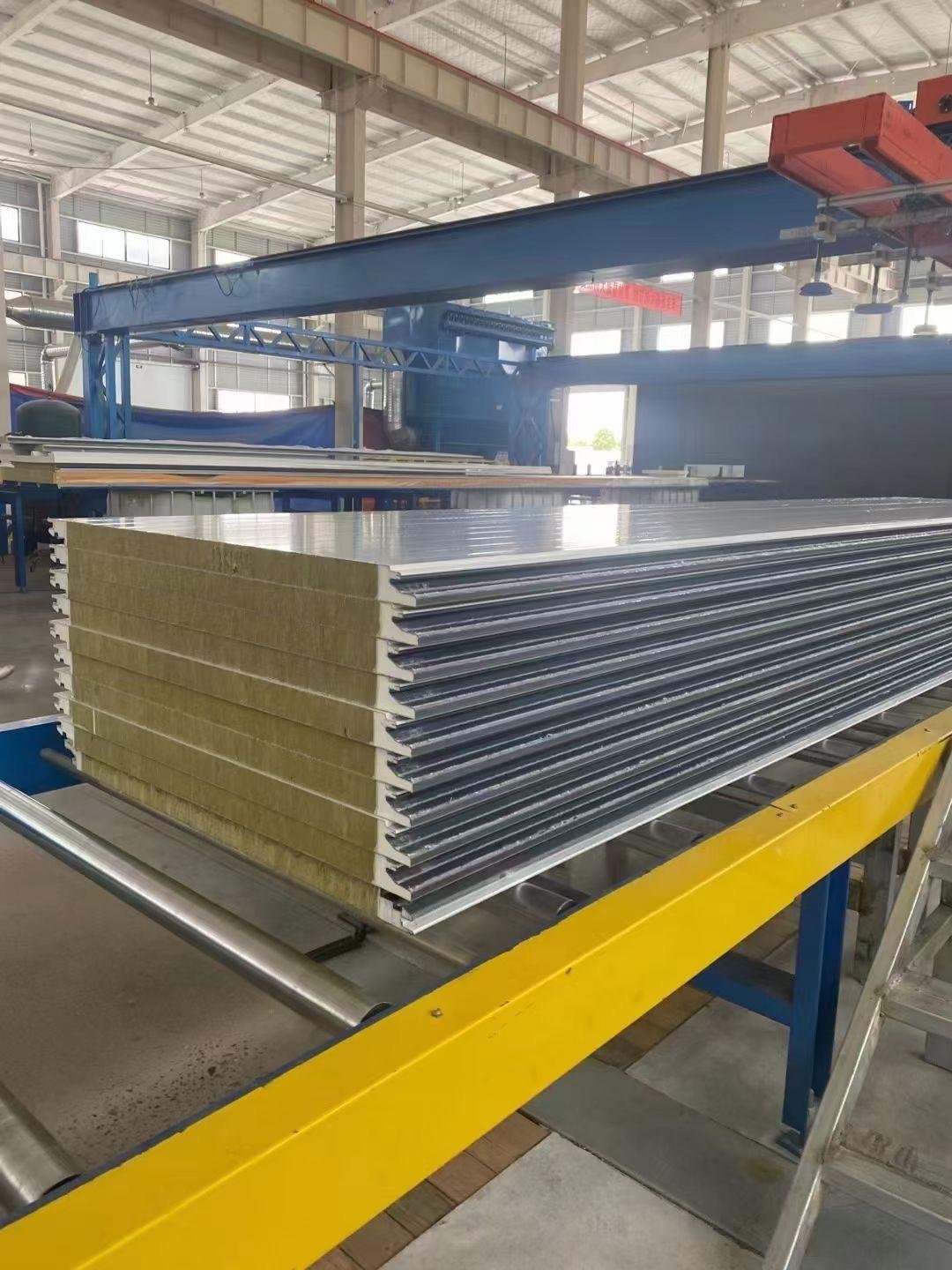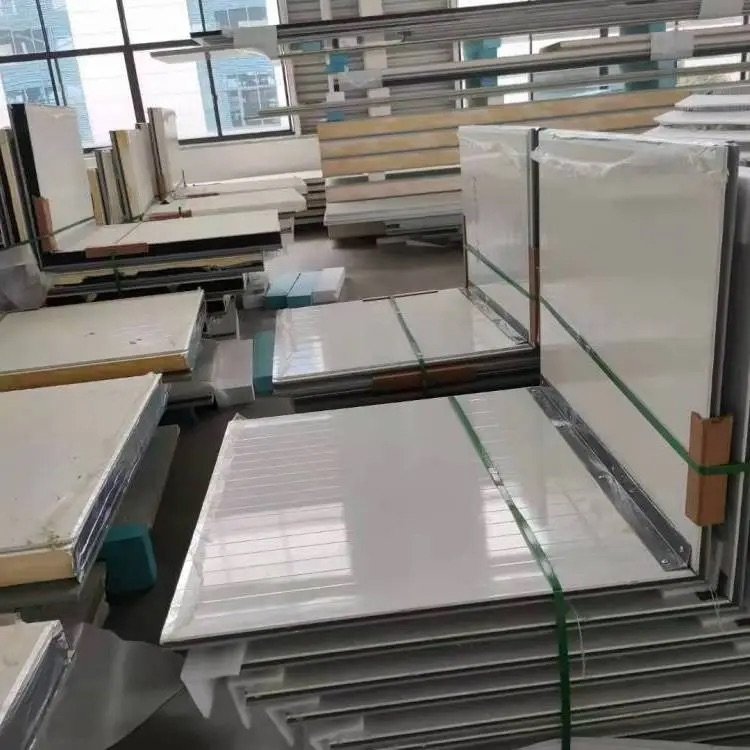Rockwool panels need core density to work their best. The density impacts how they block heat, resist fire, stop sound, and stay strong. For instance, thicker panels resist fire better. Thinner panels may absorb sound more effectively. Knowing core density helps you pick the right Rockwool panel. This ensures it fits your needs and works as expected.
Key Takeaways
Core density affects how Rockwool panels insulate, block fire, and stop noise. Pick the right density for your needs.
Thicker panels are better for fire safety and strength. Use them in places where safety and durability matter most.
Thinner panels work well for blocking noise. Use these in loud areas to make spaces quieter and more comfortable.
Think about performance, cost, and weight when choosing panels. Talk to manufacturers to find the best option for your project.
Knowing about core density helps you choose wisely. This makes sure your Rockwool panels work well for insulation, fire safety, and noise control.

Understanding Core Density in Rock Wool Sandwich Panels
What is core density and why it matters
Core density means how much material is packed in a Rockwool panel. It is important because it affects how the panel works. Panels with higher density are stronger and resist fire better. Panels with lower density are better at reducing noise. By knowing core density, you can pick the right panel for your needs. This helps the panel work well for insulation, fire safety, or soundproofing.
How to measure core density
To measure core density, find the weight of the panel’s core. Then, divide it by the core’s size. Tools like scales and measuring devices help get exact numbers. Makers test panels in labs to make sure they are consistent. Knowing the density shows how the panel will perform, like keeping heat out or supporting weight.
Common density ranges in Rockwool sandwich panels
Rockwool panels have different densities for different uses. Most panels have densities between 80 kg/m³ and 120 kg/m³, as shown below:
Density Range (kg/m³) |
|---|
80-120 |
Panels in this range balance strength, fire safety, and soundproofing. For example, panels near 120 kg/m³ are great for fire safety. Panels closer to 80 kg/m³ are better for reducing noise.
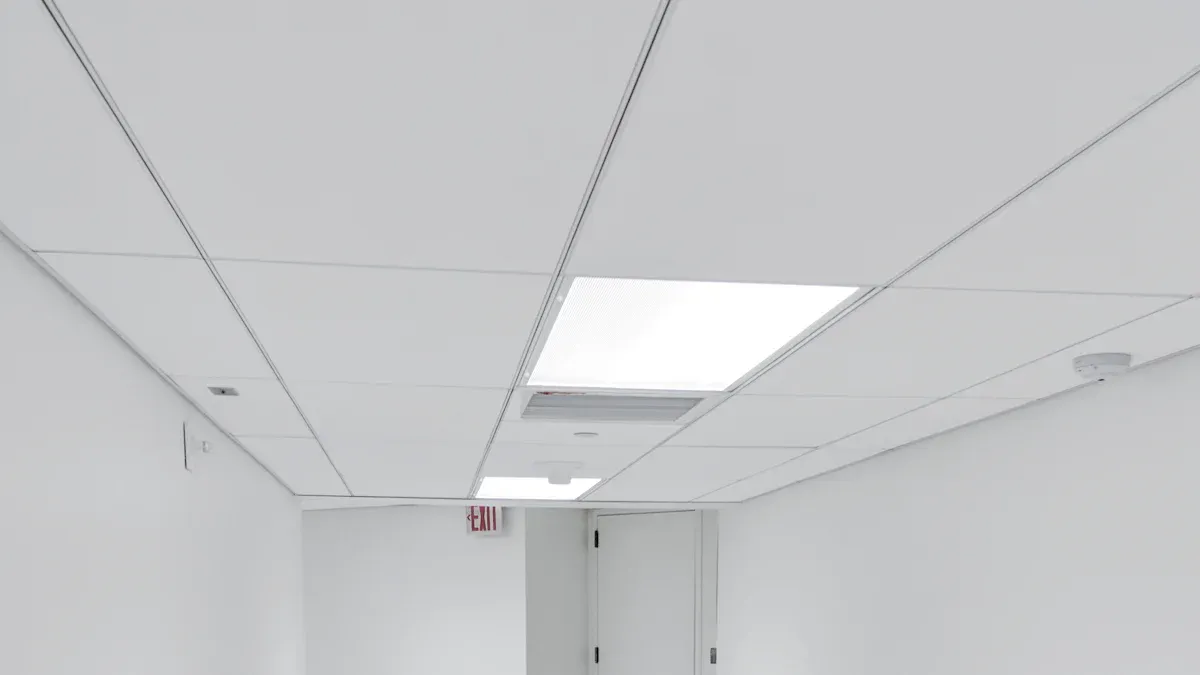
Core Density and Thermal Insulation Performance
How density affects heat resistance
The density of Rockwool panels helps stop heat movement. Thicker panels block heat by reducing air spaces inside. This makes them better at keeping indoor temperatures steady. Research shows low-density panels match heat tests well. But high-density panels might lack oxygen, affecting their use in some cases. Knowing this helps you pick panels for your insulation needs.
Where high insulation is needed
Rockwool panels work well where strong insulation is a must. For example, cold storage rooms and building roofs need thick panels. These panels stop heat loss with higher R-values. Below is a table showing uses, thickness, and R-values:
Use Case | Suggested R-value | Panel Thickness Example | R-value Example |
|---|---|---|---|
Cold storage | 20 to 30 | 4-inch (100mm) | 12 to 16 |
Building roofs | 20 to 30 | 4-inch (100mm) | 12 to 16 |
Hot equipment | 10 to 20 | 2-inch (50mm) | 6 to 8 |
AC ducts | 5 to 10 | 1-inch (25mm) | 3 to 4 |
This table shows how the right panel density fits different needs.
Finding the best density for heat control
Choosing the right density is key for good insulation. Thicker panels block heat better but cost more and weigh more. Thinner panels are cheaper and lighter but insulate less. Think about your needs, budget, and weather when choosing. Talking to panel makers can help you decide the best one for your project.
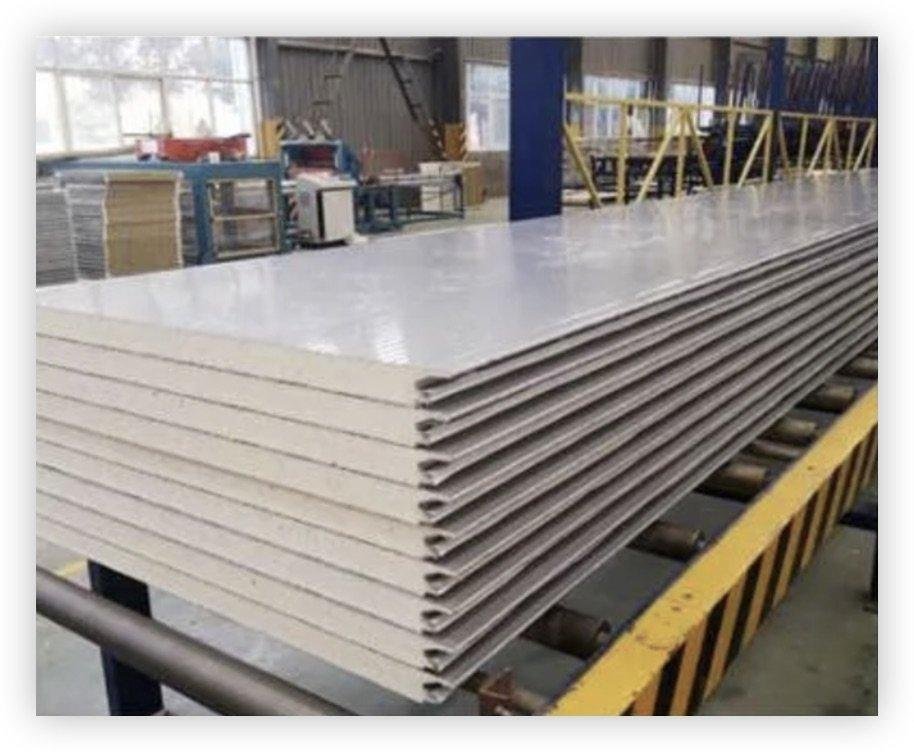
Core Density and Fire Resistance in Rock Wool Sandwich Panels
Fire-resistant properties of Rockwool panels
Rockwool panels are great at stopping fires. They are made from stone wool, which does not burn. Stone wool can handle heat over 1,800°F. These panels have a Class A fire rating, meaning they resist fire very well. They do not need extra chemicals to stop flames. Their low smoke and flame spread make them safer during fires.
Role of density in enhancing fire safety
The density of Rockwool panels helps them resist fire better. Thicker panels have fewer air pockets inside. This stops oxygen from feeding flames, slowing fire spread. Dense panels also stay strong in high heat. This makes them good for protecting buildings. Picking the right density improves fire safety for your project.
Critical applications for fire-resistant panels
Rockwool panels are used where fire safety is very important. Steel buildings use them for fire protection. Studies show different densities work well in extreme heat. These panels are used in factories, warehouses, and tall buildings. They are perfect for places needing strong fire safety.
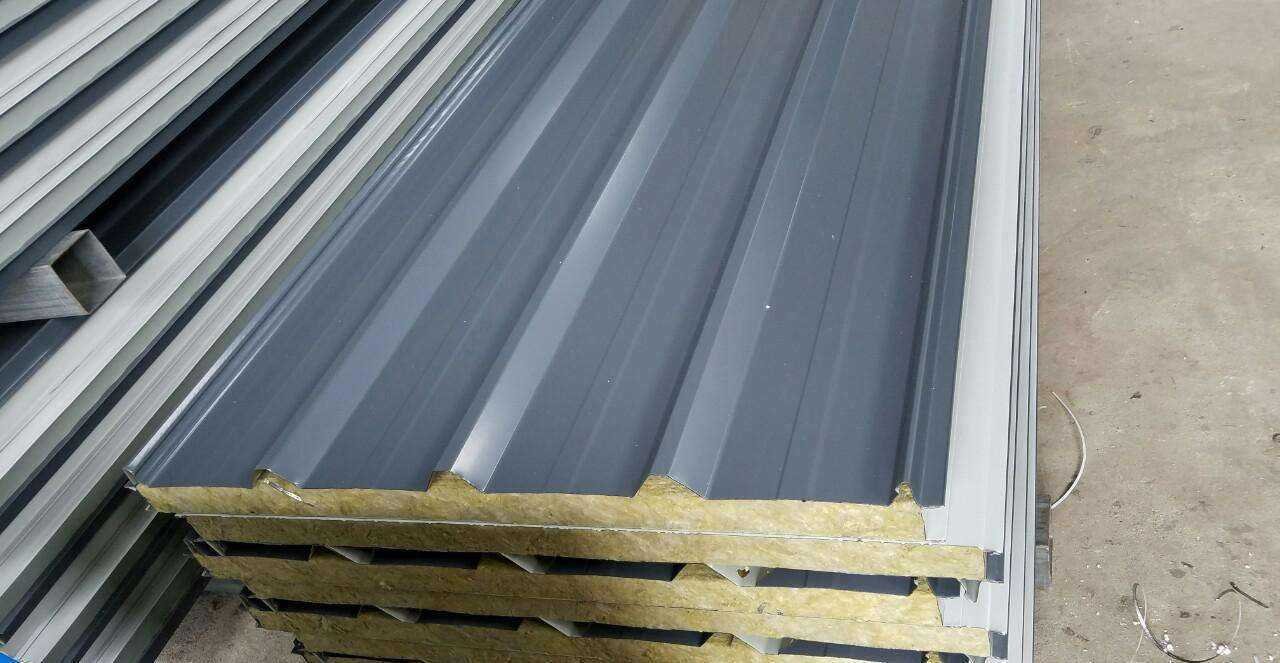
Core Density and Acoustic Performance
How density affects soundproofing
The core density of Rockwool panels helps block noise. Thicker panels stop sound waves better by absorbing them. This happens because the material is tightly packed, breaking sound waves. Thinner panels may not work well in noisy places. Special features like Dual Density Technology improve soundproofing. For example, the RAINSCREEN DUO SLAB® board has a dense top layer. This layer reflects sound and reduces noise.
Where Rockwool panels are used for soundproofing
Rockwool panels are used where quiet spaces are needed. Examples include:
Rainscreen facade systems: These panels block outside noise, making rooms quieter.
Busy city areas: They reduce traffic noise and meet BS 8233 standards.
Factories: Panels lower machine noise, making work safer and more comfortable.
The ROCKWOOL Acoustic Calculator helps pick the right panel for your needs. Tests show these panels work well against common noises like traffic sounds.
Use Case | Noise Reduction Ability |
|---|---|
Rainscreen Facade Systems | Blocks outside noise, improves indoor comfort |
Busy City Areas | Reduces traffic noise, meets BS 8233 standards |
Picking the best density for soundproofing
Choosing the right core density depends on your needs. Thicker panels are better for loud places like cities or factories. Thinner panels work for quieter areas. Think about cost and performance when deciding. Ask manufacturers or use tools like the ROCKWOOL Acoustic Calculator to find the best panel for your project.
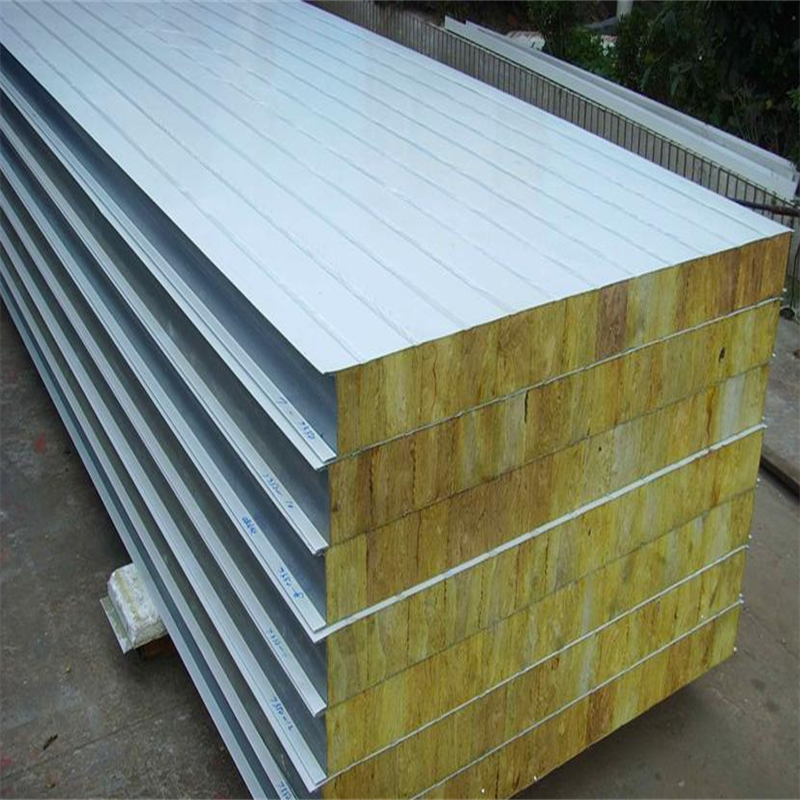
Core Density and Structural Strength
How density adds to strength
The density of Rockwool panels makes them stronger. Higher density means the material inside is packed tightly. This helps the panel hold weight and stay firm. These panels are great for projects needing strong materials. For example, in buildings, denser panels support walls and roofs better. They also keep their shape under pressure, lasting a long time.
Why durability and stability matter
Durability depends on how dense the panel is. Denser panels last longer because they resist damage better. They can handle bad weather like heavy rain or strong winds. Stability is also important. Panels with the right density stay firm and don’t bend or sag. Picking the right density gives your project both strength and stability.
Where strong panels are needed
Rockwool panels work well where strength is very important. Factories, warehouses, and tall buildings often use these panels. They are also good for places with tough weather. Their strength and durability make them last a long time. If your project needs to hold heavy loads or stay insulated, pick a high-density Rockwool panel.
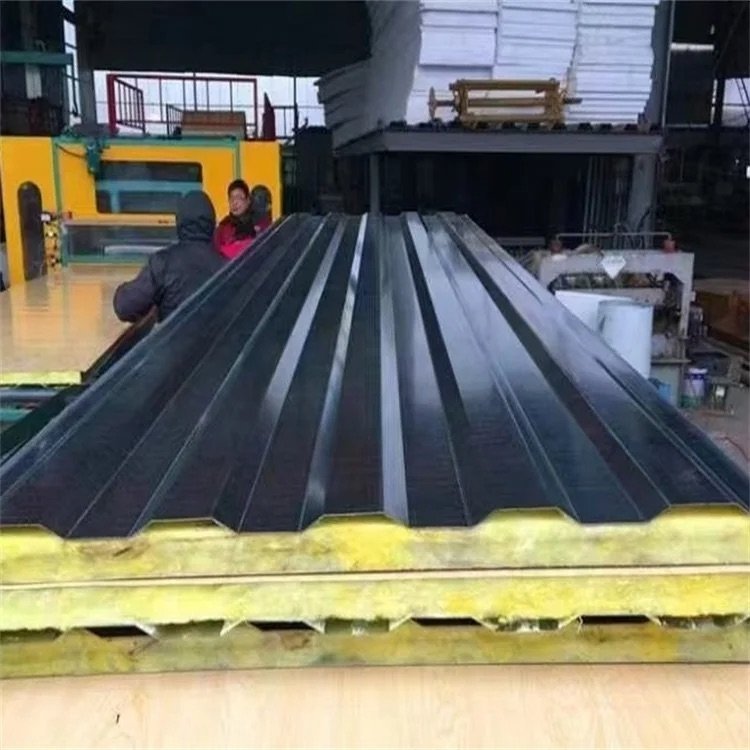
Choosing the Right Core Density for Rock Wool Sandwich Panels
Factors influencing density selection
When picking the core density of rock wool panels, think about a few things. The panel’s purpose is very important. For example, fire-resistant panels need higher density. Panels for soundproofing might need lower density. Weather conditions also matter. Places with harsh weather need stronger and more insulated panels. Your budget is another factor. High-density panels cost more but work better.
Also, consider the panel’s weight. Heavier panels may need stronger support structures. This is crucial for big projects like warehouses or tall buildings. By thinking about these factors, you can pick panels that fit your needs well.
Balancing performance, cost, and weight
It’s important to balance performance, cost, and weight when choosing panels. High-density panels are strong and resist fire well but cost more. Low-density panels are cheaper and lighter but may not last as long or insulate as well.
Focus on what your project needs most. For example, if fire safety is key, spend more on high-density panels. If weight is an issue, pick medium-density panels that still work well. Always compare the benefits and costs to make the best choice.
Consulting manufacturers for tailored solutions
Talking to manufacturers can help you find the best panels for your project. They can customize the size and density to match your needs. This makes sure the panels work well for your specific use.
Experts say working with manufacturers is very helpful. They can offer advice, follow trends, and use new technology to improve panels. By teaming up with them, you get solutions that fit your project and save money.
Tip: Contact manufacturers early in your planning. Their advice can help you pick the right panels and avoid mistakes.
Core density is key to how Rockwool panels work. It affects how well they insulate, stop fires, block noise, and stay strong. Picking the right density depends on what your project needs. This could be for keeping heat out or stopping fires. Working with manufacturers helps you get panels made for your needs. Their knowledge helps you choose panels that balance cost, strength, and performance.
Tip: Talk to experts to match panel density to your project for the best outcome.

FAQ
What is the best core density for Rockwool panels?
The best core density depends on your project needs. For fire safety, pick higher densities (about 120 kg/m³). For soundproofing, lower densities (around 80 kg/m³) are better. Talk to manufacturers to find the right density for your project.
Can Rockwool panels be made for special uses?
Yes, manufacturers can customize Rockwool panels for your needs. You can ask for specific densities, sizes, or features. This helps meet goals like insulation, fire safety, or soundproofing. Plan early to get the best results.
How can I check the core density of a Rockwool panel?
To check core density, divide the panel’s weight by its size. Use a scale to weigh it and tools to measure its dimensions. Manufacturers often share density details, so you may not need to calculate it yourself.
Are high-density panels always the best choice?
Not always. High-density panels are great for fire safety and strength. But they cost more and are heavier. Lower-density panels are lighter and better for soundproofing. Choose density based on your project’s needs.
Do Rockwool panels need upkeep?
Rockwool panels need very little upkeep. They last long because they resist fire, water, and pests. Check them sometimes for damage, especially in tough conditions.
Tip: Ask experts to help you pick the right panel density for your project.

